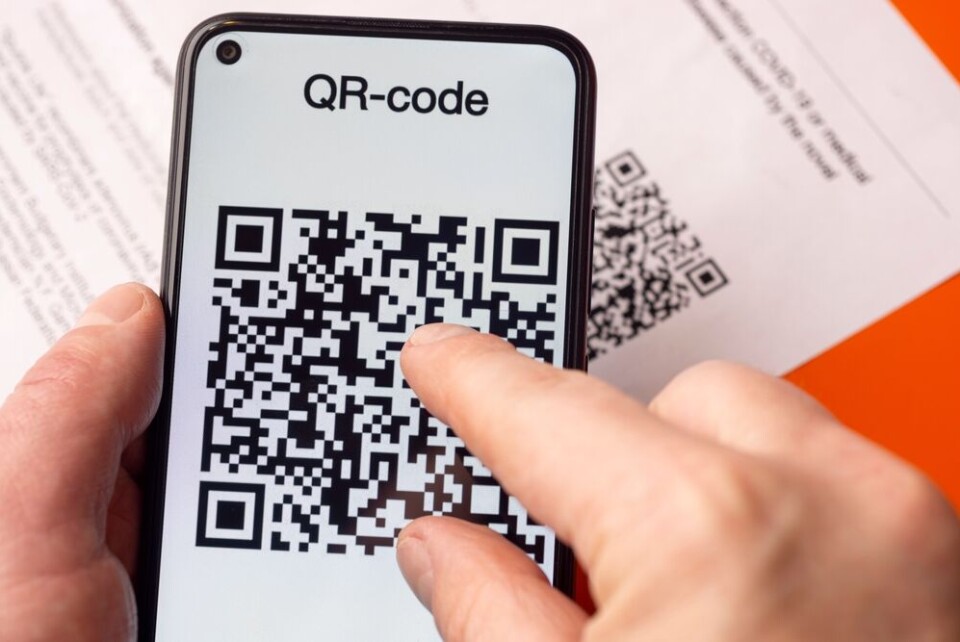-
Digital ID to be accepted at French airports this summer
Scheme not open to non-French residents despite plans to include certain card holders by the end of 2025
-
AI usage on the rise in France but lags behind UK and US
Uptick in generative AI usage outpaces smartphone and internet adoption across similar timeframe
-
Poor-quality fibre internet installations remain an issue in France
Stricter measures are announced to improve connection quality
QR codes to replace paper medicine leaflets in new trial in France
The trial is intended to help reduce paper waste and digitise the healthcare industry

France is to trial a system in which QR codes will replace the paper information leaflet included inside medicine boxes in a bid to reduce paper waste.
The new system will launch in 2024, and will see QR codes printed on some boxes with a view to replacing the paper leaflets entirely in future.
Initially, this will only apply to common medicines such as paracetamol and well-known antibiotics, but could later be rolled out to prescription drugs, and even to those used against chronic conditions such as cancer.
QR codes are a type of square ‘bar code’, which can be scanned and take the user to a specific webpage. Users must point their phone camera at the QR code, and a web page URL (address) then pops up. When clicked or tapped, that URL takes the user to the relevant page online.
This means that each medicine box can have a different QR code on it, and take the user to a specific information page about the drug in question.
The intention is that the webpage will have several advantages in comparison to the paper leaflets (as well as saving paper), including more readable text and relevant videos to help with dosing.
Digitising the health system
The plan is part of the wider ‘ecology’ strategy to ‘digitise’ the health system, and will be led by health authorities l'Agence nationale de sécurité du médicament (ANSM) and the Direction générale de la santé.
Pharmacies and hospitals will test the scheme differently; medicine boxes used in hospitals will get rid of the paper information ‘immediately’, because “they are not used at all in in-house hospital pharmacies”, the ministers said.
No more paper leaflets?
The trial is intended to “evaluate the use of the QR codes by patients”, and depending on the results, “this could lead towards the suppression of paper leaflets”, said the government.
However, the ministers said that pharmacists could still make leaflets available for people who “have difficulty accessing digital information”.
They added that they would also be working on a new “methodology for calculating the carbon footprint of healthcare products, particularly medicines”, in 2024.
Products such as medicines account for 54% of the greenhouse gas emissions from the healthcare sector, which itself emits 8% of the gases nationwide, figures show.
The change is the latest in several new measures aimed at the healthcare industry and boxes of medicines in particular, after the government passed its 2024 healthcare budget bill earlier this month.
Among the new measures include plans to allow pharmacists to dispense single-dose, or specific tablet quantities of a medicine - rather than entire boxes - in the event of a drug shortage.
Read more: Some antibiotics may be sold pill by pill due to shortages in France
From pill boxes to wine bottles
Healthcare is not the only sector in France to be introducing the use of QR codes on packaging.
From December 8 this year, wine bottles produced must have a QR code on their label that takes users to a page showing the calorie information and full ingredients list.
“The European Commission has agreed that all this new information can be displayed via a QR code, which consumers can scan with their smartphones,” said Christophe Chateau, a member of the Bordeaux Wine Trade Council (CIVB), to Capital.
“This will apply to all vintages from 2024 onwards, i.e. bottles sold in 2025 onwards,” he said.
Related articles
10 key measures adopted in France’s new healthcare budget
Shortages of 4,000 medicines in France; what risk for this winter?
What is France’s ‘franchise médicale’ fee and why might it go up soon?
























